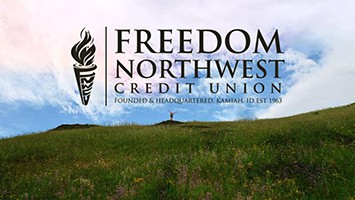


Federal regulators need to explain why they’ve granted a perpetually-floundering California credit union that serves organized labor permission to raise money from investors—especially considering those regulators haven’t given the same green light to a strong and growing credit union that serves rural Idahoans.
Credit unions are member-owned nonprofits and generally can use only retained earnings for expansion plans. If a credit union wants to grow using secondary capital from investors, it must first seek permission from the National Credit Union Administration (NCUA), which is supposed to evaluate the credit union's stability and financial position before giving the green light.
A spokesman for the NCUA wasn’t immediately able to explain why Union Yes Federal Credit Union, headquartered in Orange, California, was approved to raise secondary capital, while Freedom Northwest Credit Union, located in Kamiah, must grow without an infusion of cash it hoped to get from interested investors.
A recent article in the American Banker trade magazine heavily criticized the NCUA’s decision regarding Union Yes, calling the credit union “thinly capitalized.” Bankers may have their reasons to oppose credit unions’ use of secondary capital, but the magazine closely examined the California credit union’s financial situation and took exception with the NCUA decision on that basis.
The government’s approval of Union Yes’ capital raise indicates NCUA regulators are “willing to sign off on things that the Federal Reserve, the Federal Deposit Insurance Corp. and the Comptroller of the Currency would be unwilling to approve,” John Reosti wrote in the trade magazine. In that article, an NCUA spokesman declined to comment on the decision.
One of North America’s top credit union advisers, Brett Christensen, told me that, while he doesn’t know the reasons behind the federal government’s actions, Union Yes “is in very poor financial position,” with a net worth ratio that would ordinarily force it to “find a merger partner or cease to exist.”
Freedom Northwest, on the other hand, “is in a strong financial position … that probably puts them in the top 5 percent of all credit unions in the country,” Christensen explained. He said Freedom Northwest’s financial position and growth plans make it a great candidate for secondary capital.
Freedom Northwest has been growing over the last couple of decades, and now boasts a balance sheet with $162 million in assets and net worth that has grown sevenfold in the last 15 years. Union Yes, on the other hand, has assets of about $74 million, and its net worth of approximately $3 million is slightly less than it was in 2004.
Scott Garrett, CEO of Freedom Northwest Credit Union, says the NCUA would have had to ignore its own rules in order to grant Union Yes permission to raise money from investors.
“In fact, Union Yes’ use of secondary capital is labeled a misuse in three different ways within the NCUA’s best practice guidelines,” Garrett said. “When the NCUA doesn’t follow its own standards, it harms FNWCU and harms Idahoans. It has the direct impact of making rural home borrowers pay higher rates than they would be paying if the NCUA wasn't playing political games. I guess it’s just more of the same: federal players picking political friends over the rule of law while totally discounting rural Idahoans.”
A spokesman for the government agency has yet to get back to me with answers about the controversial decision regarding Union Yes and Freedom Northwest. So I don’t know if, behind the scenes at the NCUA, they’re playing politics with decisions affecting Idaho’s financial institutions.
But I’ve been working in the public policy space for more than 30 years, and I also happen to run an organization with “freedom” in its name. It looks to me like the government’s decision bears a stunning similarity to what we saw from the IRS six years ago. You’ll recall the outrage after it was discovered that the IRS targeted organizations with words like “tea party” or “patriot” in their names.
Now, another federal agency appears to be doing the same. At the very least, federal regulators bent their own guidelines to grant privileges to a failing credit union that serves liberal unions in California, while a healthy credit union helping borrowers and savers in Idaho remains in waiting. It’s hard to prove, but it makes one wonder whether liberal bias continues to hold sway deep within the federal bureaucracy.


